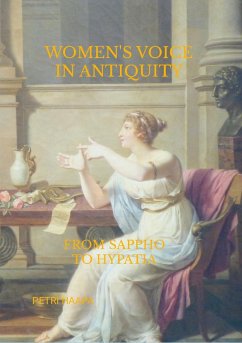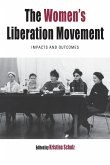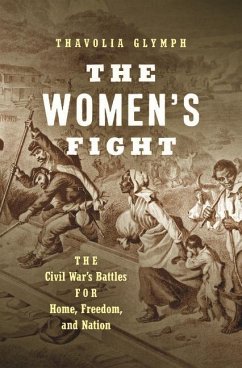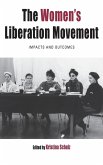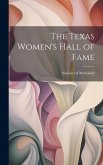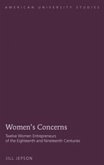The contribution of women in society has been underestimated over the centuries. The book deals with women as writers, philosophers, and scientists in antiquity. The guiding idea of the book is that civilization's perception of its own history has been seen and examined almost exclusively from a patriarchal perspective. Aristotle's philosophy also has had a great influence on the demeaning attitude towards women in Western culture. It is said that women poets in ancient Greece wrote about things typical of women from a different perspective than men. In a culture where women's and men's circles of life were separate, women's poetry developed in a women's subculture. Women performed and sang their poems at special women-only religious festivals. However, poetry written by women is not always written from a markedly subjective point of view. Our view of ancient Greek female poets and wordsmiths is likely mediated and filtered through ancient Roman culture. The text also discusses philosophical schools that accepted women as equal members, including the Platonic, Pythagorean, Epicurean, Cyrenaic, and Cynic schools. The role of women in these schools diminished from independent thinkers to supporting their husbands, especially in Roman Stoic philosophy. There is ongoing debate about whether these schools viewed intellect and virtue as genderless, with some holding that some souls are female and inferior. Throughout history, both men and women served as healers, with Greek women healers revered for their connection to snakes. In spite of this some scholars still doubt the existence of female doctors in ancient times, despite evidence of women practicing medicine. Women healers faced restrictions in later times, being limited to roles like midwife. This may have been due to concerns about abortion under a sole midwife's care. The terms obsterix or maia imply women as assistants, not independent practitioners or writers. In this work, an effort has been made to create an image of female representatives as equal authors alongside men, even though the patriarchal structures and prevailing attitudes of society have tried to limit their efforts since ancient times. The book serves as supplementary reading and an insightful source of basic information. On the oth-er hand, the work does not present things as one monolithic truth, but offers food for thought and researchers' alternative guesses about the prevailing state of affairs.
Hinweis: Dieser Artikel kann nur an eine deutsche Lieferadresse ausgeliefert werden.
Hinweis: Dieser Artikel kann nur an eine deutsche Lieferadresse ausgeliefert werden.

